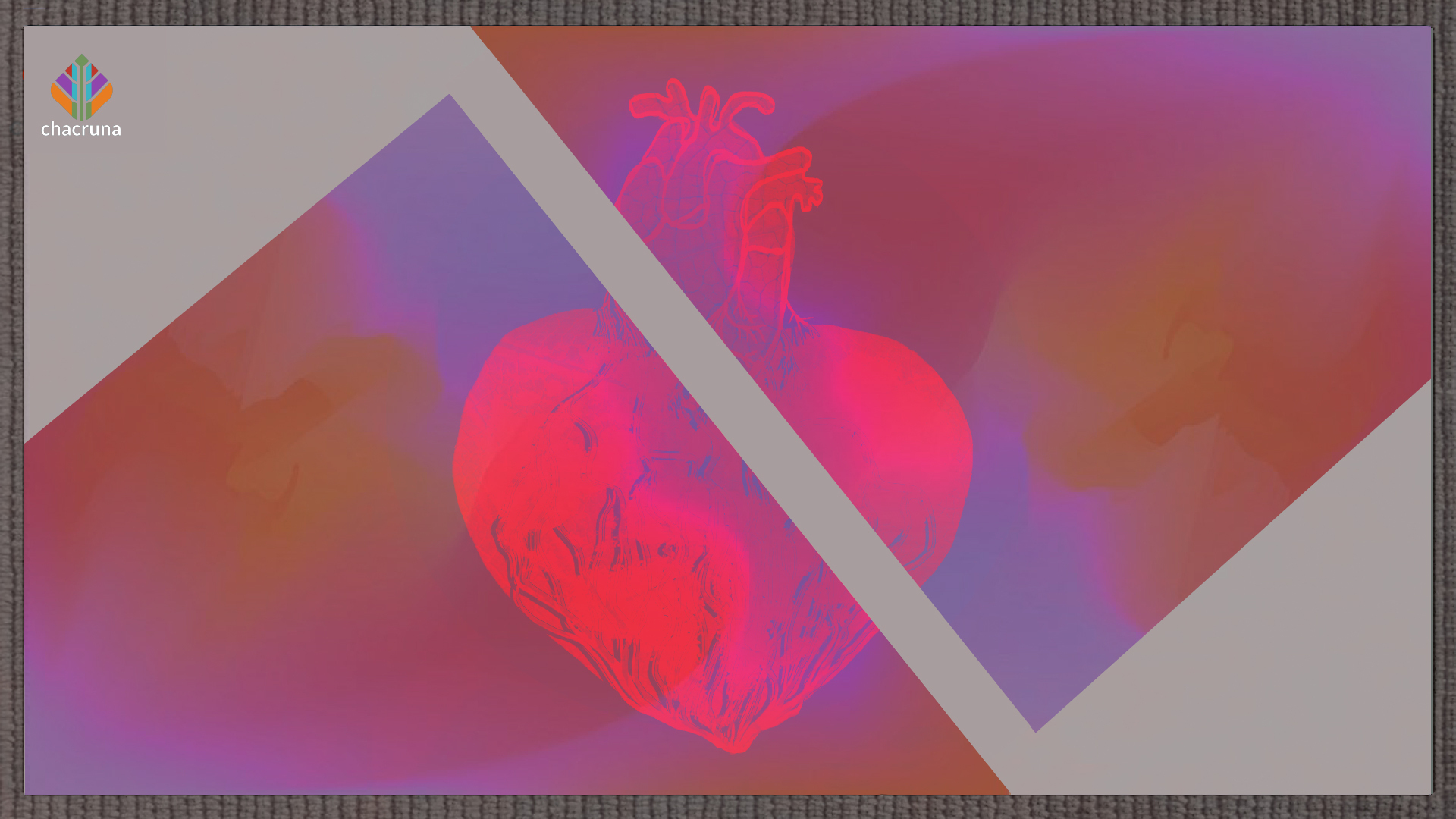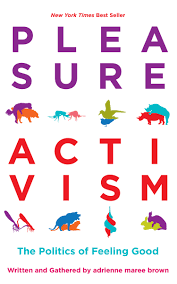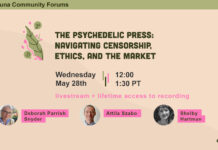- Can Psychedelics Open Us to Pleasure? - June 25, 2021
“Receive everything you’ve ever wanted!” The instructions came loud, an announcer-style voice booming through my awareness as I was flooded with more love than I could possibly hold. Sitting in an ayahuasca ceremony one New Year’s Eve, I found myself in the throes of an intensely pleasurable—yet somehow terrifying—experience. Throughout that night, it came as wave after wave of the announcer’s voice told me to receive and I felt overwhelmed with pleasure, love, and acceptance. All the while, I struggled to be in the experience, wrestled with my own sense of worthiness, and flailed around in fears about what might happen next. I was surprised to find that it was quite difficult to receive an abundance of the very things I often longed for. That night became an important teaching on receiving pleasure, acceptance, and love and an illumination of my own mental barriers to joy.
Leading up to that ceremony, I had been researching pleasure as a human right. Much of my academic research over the years centered on human sexuality and the subject of pleasure was emerging as a potent, and perhaps revolutionary, interest. I was in the process of designing a small study to investigate how entheogen use might impact sexuality but I didn’t necessarily expect to receive direct information on that topic through my own plant medicine experience. In fact, it was over a year later before I connected the dots, realizing that the information that came that night was not only helpful to me personally, but also very relevant to my research.
“Pleasure can take many forms and is an integral part of human experience. But, for some, pleasure can be a source of shame, confusion, or repression.”
Pleasure can take many forms and is an integral part of human experience. But, for some, pleasure can be a source of shame, confusion, or repression. Openness to pleasure can be thwarted, due to past traumas, family conditioning, or struggles with self-acceptance, among other influences. Sexual pleasure, in particular, can be a highly charged topic. The process of opening to pleasure may become a reckoning with social conditioning, self-worth, and the ability to receive. Psychedelic experiences can lead to questioning of some or all of these issues and for many, can open a pathway to new understandings of pleasure. All of this led me to want to investigate further, both personally and academically.
Recordings are now available to watch here.
Less Shame, More Acceptance
In 2020-2021 I conducted an exploratory study at Arizona State University in which 65 participants completed a survey about sexuality and entheogen use. I inquired about numerous aspects of sexuality, including some questions specifically about pleasure. Most participants reported that they felt more open to pleasure (both sexual and otherwise) since working with entheogens such as psilocybin mushrooms, ayahuasca, peyote, and san pedro.
Among my study participants, reduction in shame was a frequent and relevant piece of the puzzle. As a female participant in her 40s said, “I feel empowered to seek my pleasure without guilt or shame. I think the plant medicine showed me how to enjoy myself, as a feminine energy.” One male participant in his 50s, described it as an openness to “pleasure in general, in all aspects of life,” further explaining that “sexually I am more calm and open to the process, interaction, and letting things progress and happen naturally rather than with an agenda. It is easier for me to communicate what I want or desire than previously without shame.”
“Psychedelic experiences can help process traumas that have rooted us in shame or repression. As these issues come to light, there can be more breathing room for freedom, empowerment, and understanding of what we truly feel or desire.”
Psychedelic experiences can help process traumas that have rooted us in shame or repression. As these issues come to light, there can be more breathing room for freedom, empowerment, and understanding of what we truly feel or desire.
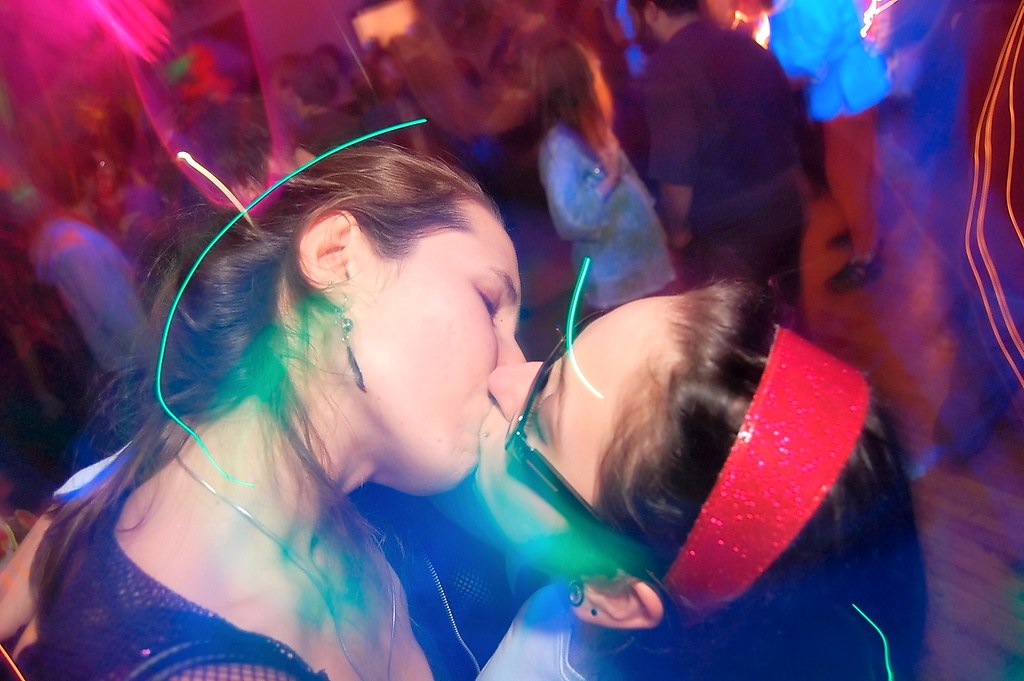
Pleasure as a Human Right
Societal messages often portray sexuality as being dangerous, especially for women, and focus on negative aspects rather than women’s desires and pleasure. In Women, Sexuality, and the Political Power of Pleasure (2013), Susie Jolly, Andrea Cornwall, and Kate Hawkins explain that media and social cues perpetuate the ideas that sexual pleasure is only relevant to certain people, such as the young and able-bodied, and that certain kinds of sexual pleasure are superior to others. The authors write that heterosexual sex is socially prioritized and while women are equated with purity and sexual restraint, men are equated with sexual power. In this way, reclaiming pleasure is a way of taking back agency, perhaps most especially for those who have experienced sexual repression. Through the self-discovery initiated in psychedelic experiences, it is possible to recover more agency and expand the ability to allow pleasure as well.
Jolly, Cornwall, and Hawkins explain that sexual pleasure can be viewed as a human right, pointing to basic rights such as knowing and liking our sexual organs, the right to have sex regardless of marital status, and the right to experience orgasms, and sexual wants and needs. Further, we have the right to not experience those things if that is our choice. Psychedelics may invite us to question limiting social messages and empower us to speak up about what we do or do not want. This can lead to greater respect for our relationships and our sexuality.
“Psychedelics may also illuminate patterns, making it more possible to opt for different choices in relationships, gender roles, and sexual expression, allowing for increased pleasure in all aspects.”
Psychedelics may also illuminate patterns, making it more possible to opt for different choices in relationships, gender roles, and sexual expression, allowing for increased pleasure in all aspects. For example, some of my study participants reported that after entheogen use, they felt more acceptance for their own desires for sex, new and different sexual explorations, and sex with genders they may have previously not allowed themselves to consider. For these participants, it was not that psychedelics changed their orientation or desires; psychedelics impacted their sense of self-acceptance, which led them to accept desires that they may have previously denied. This, in turn, allowed for more pleasure.
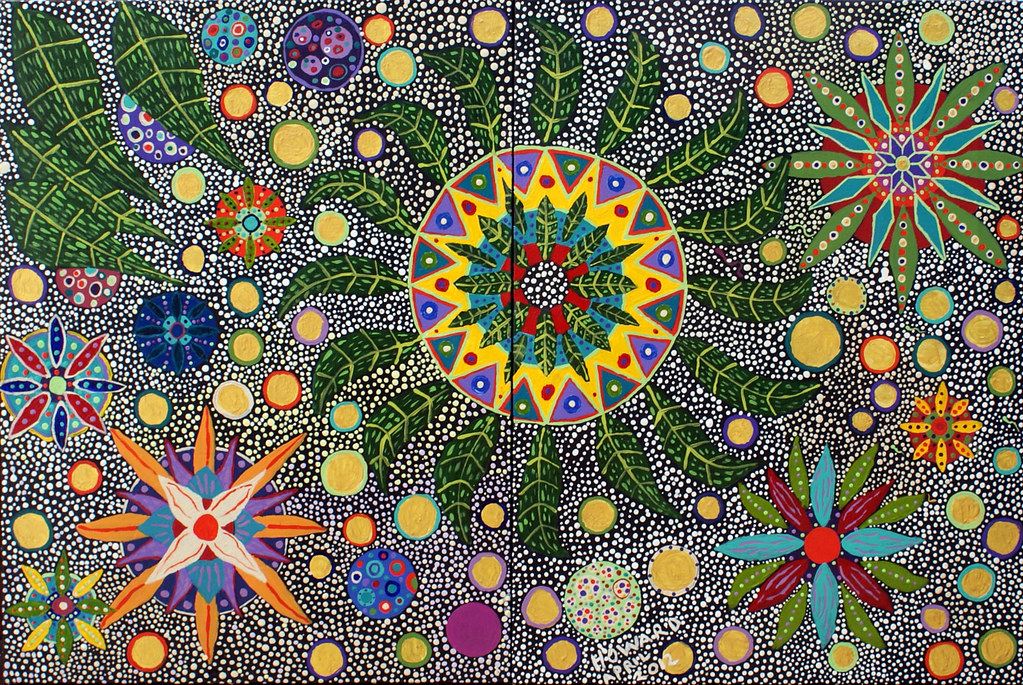
On the shadow side, openness to new experiences and pleasures can put us in a vulnerable position—particularly, if that openness occurs while in an altered state. This level of openness can be exploited as in the cases of psychedelic facilitators taking advantage of participants who are guided into sexual encounters under the guise of healing. This issue highlights the importance of working with facilitators that hold integrity and taking care in selecting the environments that these states are explored in. For helpful safety considerations, see the Chacruna Sexual Awareness Guidelines, which is specific to ayahuasca settings but provides useful information that can be applied to other psychedelic settings as well.
Pleasure as Self-Care
Throughout the complex processes of psychedelic experiences and integration, there may be times when extra self-care, support, or soothing practices are needed. Often these are practices that bring pleasure and can be significant steps in fostering self-love. As Françoise Bourzat writes in Consciousness Medicine (2019), “self-nourishment and self-love are possibly the most transformative experiences we can have in an expanded state of consciousness.”
Discover Indigenous Reciprocity Initiative of the Americas
Self-care arising out of self-love can involve simple pleasures. Those may include such practices as listening to elevating music, accepting support from a guide or facilitator during a psychedelic experience, spending time in nature, or welcoming love in its varied forms. As we love ourselves more, we may accept greater pleasure. And on the flip side, allowance of more pleasure may be a pathway for learning to love ourselves more.
As powerful as psychedelic journeys can be, further understanding often comes through integration in the days and weeks that follow. It is one thing to be blasted open to pleasure in an altered state, but an ongoing, sustained shift comes through awareness in day-to-day living. In my own experiences, I find these opportunities as invitations to become clearer in my own yes or no choices, to have compassion for myself, to expand my ability to receive love and support, and to connect to small joys in the midst of it all. This leads to more openness to pleasure.
Pleasure Activism
One of my favorite writers on the topic of pleasure is adrienne maree brown, who explores empowered personal experience and pleasure, illustrating the many ways that pleasure is a significant part of life. In Pleasure Activism (2019) brown describes pleasure as “a measure of freedom,” stating that “liberation [is] possible when we collectively orient around pleasure and longing.” She shares the idea of “pleasure activism,” which acknowledges that there are politics and power dynamics connected with everything that helps us feel good. As brown says, this “includes sex and the erotic, drugs, fashion, humor, passion work, connection, reading, cooking, and/or eating, music and other arts, and so much more.”
Pleasure is possible throughout so many aspects of life. As a female participant in her 60s shared in my study, “Everything is about pleasure now! Food, sex, family, work.” Among some participants in my study, connection with pleasure included sexual pleasure but expanded to other forms of pleasure as well. We often see this in the afterglow of psychedelic sessions, when enhanced senses bring deeper delight in the taste of a strawberry or the beauty of the night sky.
In the heightened pleasure of my New Year’s Eve experience, I found that I held some hesitation and fear around accepting that much pleasure. I was, in many ways, more familiar with pain. I wanted pleasure but when faced with it, I felt vulnerable and struggled to be fully present with it. I mentally braced myself, in anticipation of what difficulty might be coming next. Meanwhile, ayahuasca kept the love avalanche coming. After that experience, I could see it as a pattern in my daily life as well, noting hesitation around pleasure while finding comfort in the familiarity of pain. This allowed me to question that pattern, making it more possible to recognize my fear and to choose to embrace more pleasure in all areas of life.
“The opening to pleasure in a psychedelic experience … may be a pathway for learning to allow and accept greater pleasure in day-to-day existence.”
The opening to pleasure in a psychedelic experience—whether physical pleasure or more mystical types of pleasure—may be a pathway for learning to allow and accept greater pleasure in day-to-day existence. Perhaps, through psychedelics, we can begin to know ourselves as deserving of pleasure and to expand of capacity for receiving. In learning to love and accept ourselves more, we may welcome more pleasure in varied forms, in both big and small delights. The reclaiming of the right to pleasure may be one of the ways that we set ourselves free.
Art by Mariom Luna.
References
Bourzat, F. (2019). Consciousness medicine: Indigenous wisdom, entheogens, and expanded states of consciousness for healing and growth. Berkeley, CA: North Atlantic Books.
brown, a. m. (2019). Pleasure activism: The politics of feeling good. Chico, CA: AK Press.
Jolly, S., Cornwall, A., & Hawkins, K. (2013). Introduction: Women, sexuality and the political power of pleasure. In Jolly, S. (Ed.) Women, sexuality and the political power of pleasure: Sex, gender and empowerment (pp.1-27.) New York, NY: Zed Books.
Khalsa, K. (2021). Impacts of entheogen use on the experience and expression of sexuality [Unpublished master’s applied project]. Arizona State University.
Take a minute to browse our stock:
Did you enjoy reading this article?
Please support Chacruna's work by donating to us. We are an independent organization and we offer free education and advocacy for psychedelic plant medicines. We are a team of dedicated volunteers!
Can you help Chacruna advance cultural understanding around these substances?


